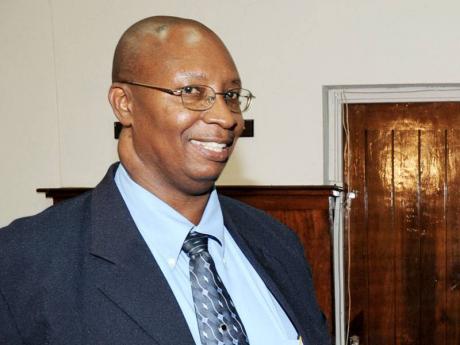Cops eye Costa Rica as crime fight model
THE JAMAICA Constabulary Force is pushing to bring the country's murder rate in line with that of Costa Rica in seven years and believes the proposed anti-gang legislation will serve as a critical tool.
Deputy Commissioner of Police Glenmore Hinds, who made the announcement on Wednesday, said Jamaica's murder rate now stands at close to 40 per 100,000, down from just over 60 per 100,000 last year.
Costa Rica's murder rate is now estimated at just over seven per 100,000, which is among the lowest in central America.
"We are determined to bring our murder rate in line to that of Costa Rica's in seven years," said Hinds, who was addressing the Lions Club of Kingston at The Jamaica Pegasus hotel, St Andrew.
Making a case for the enactment of the controversial anti-gang legislation, Hinds argued that the existing legal framework was designed to deal with individual crimes and is, therefore, inadequate to deal with the number and violent nature of the criminal gangs operating in Jamaica.
Unreliable legal framework
"Any country that has experienced our level of gang activities cannot rely on the existing legal framework to deal with them," he said.
"For example, if there is a gang of 12 persons and one is arrested, there are 11 left to harass, intimidate and kill witnesses," he explained.
Citing legislation enacted in other countries to deal with organised crime, Hinds said US law-enforcement personnel have laws that allow them to 'spread the pain' across a criminal network.
This, he said, takes into account those who facilitate and support gangsters, making them equally guilty of offences committed by the gang.
"I can see some accountants who are going to be trembling, some lawyers who are going to be trembling, because if you knowingly provide this kind of support to a criminal group, then you are guilty of facilitation," Hinds said.
The anti-gang legislation, which has already been approved by Cabinet, seeks to impose longer sentences on gang members and reduce their ability to reorganise.
Human rights groups have come out against the proposed legislation, but Hinds contend that it is going to be a "significant fillip in our fight against organised criminal gangs."
"That is how enlightened countries would have developed legislation to deal with a compelling problem that threatens to and has the potential to reduce any nation to bankruptcy in very short order," he reasoned.
In addition to the tough new legislation, the deputy police commissioner said there is a greater need for social intervention.
He said this would reduce the pool of ready recruits likely to be 'available' for gang recruitment.

